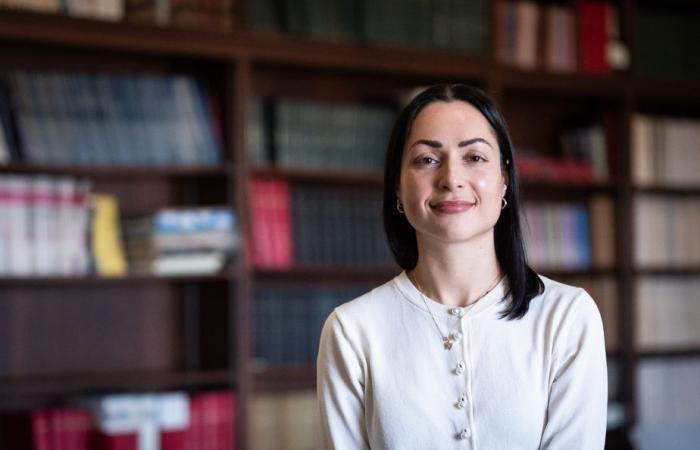Sarah*, 34, struggles to leave her house. She can’t work. Nor study. Even less use public toilets. His obsessive compulsive disorder (OCD) leads him to fear getting sick and infecting those around him. To try to overcome her fears, she will participate in a week-long intensive group therapy – a first in the health network in Quebec.
Published at 6:00 a.m.
On Monday, eight patients will be received in a room at the Allan Memorial Institute, on the edge of Mount Royal. They will spend the week there, from 9 a.m. to 5 p.m., under the supervision of five therapists. Their program will alternate between group sessions and individual consultations.
“I’m at a point where I need something that will push me out of the house. I’m really nervous, but I don’t want to let the fear take over me. I want to do it,” says Sarah.
This pilot project from the McGill University Health Center (MUHC), inspired by initiatives already implemented in the United States and Norway, is aimed at patients suffering from severe OCD. “These are patients who are refractory to other treatments,” says psychologist from the MUHC mood and anxiety disorders clinic Catherine Ouellet-Courtois.
OCD is a disorder characterized by intrusive thoughts, called obsessions, and repetitive behaviors, called compulsions, that the person performs to relieve anxiety.
PHOTO CHARLES WILLIAM PELLETIER, SPECIAL COLLABORATION
Catherine Ouellet-Courtois, psychologist at the MUHC mood and anxiety disorders clinic
Most of the time, patients will be aware that their obsessions make no sense, but they cannot help but believe and adhere to them.
Catherine Ouellet-Courtois, psychologist at the MUHC mood and anxiety disorders clinic
About 1-2% of the population is affected by OCD. “We can estimate that there are between 80,000 and 170,000 people who could be affected in Quebec,” illustrates the psychologist.
The participants of the program present different types of OCD: some fear contamination, others have superstitious thoughts, fearing that a serious event will happen to a loved one if the ritual is not carried out. Others have symmetry OCD, which causes them to rearrange objects in specific ways, or checking OCD, such as repeatedly making sure the door is locked.
“I froze”
Sarah is haunted by the fear of unintentionally causing harm to others. Her fear began in 2018, when she was an assistant in a pharmacy. “I was in charge of counting pills and I was really stressed about this job: did I dispense the right thing? Could this harm anyone? »
Then, with the arrival of the COVID-19 pandemic, his condition worsened.
I heard on the news that we had to be careful of others. Not to go out if you had a slight cough. I was very afraid to go out and do anything that would harm anyone.
Sarah*, patient with severe OCD
She stopped going out. She stayed at home and only left the house if her husband accompanied her. “If he left me alone for a second, I froze. Am I spreading germs? Will I harm anyone with my germs? “, she recalls.
For the past two years, she has been receiving individual therapy every week, which has helped her condition improve. Today, she manages to go out, but she is still not ready to return to work or frequent certain public places.
“I missed out on so many years of experience”
The patients who will participate in the program, in their twenties to fifties, have a condition similar to Sarah’s. “They are often off work or have never been able to enter the job market,” says M.me Ouellet-Courtois. Their OCD may also interfere with their ability to be in a romantic relationship.
Each participant has prepared a list of around twenty exposures that they wish to carry out during the therapy week. Participants will have to complete four per day, with or without the support of a therapist.
“They will be able to draw from their list and choose what they feel comfortable doing. They will never be forced to make an exhibition,” specifies the psychologist.
For Sarah, goals include using public restrooms, going shopping and getting close to the chemistry building at McGill University. “I missed out on so many years of experience. I want to go back to school and get my doctorate in chemistry. »
“I hope that we will see that it is beneficial for people to have an intensified formula of therapy,” says M.me Ouellet-Courtois. However, the therapy remains a pilot project and adjustments may be necessary. “Maybe we will realize that two weeks of intensive therapy would have been more helpful,” says the psychologist.
One month after the program, participants will meet in a group to assess whether their progress has been maintained or whether there has been a relapse. Sarah is feverish. “I can’t wait to see what it will bring me. »
*The patient’s first name has been changed for reasons of confidentiality.






